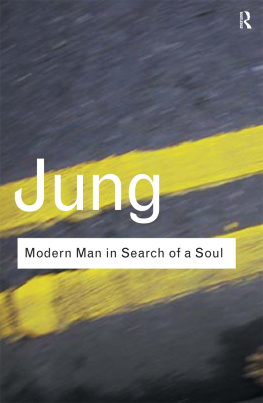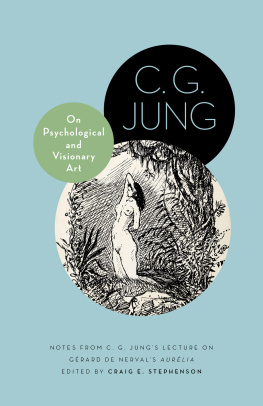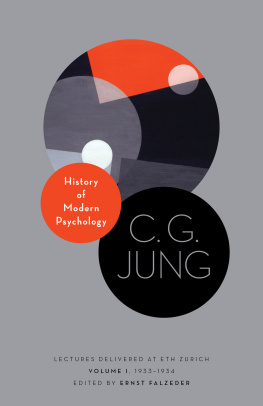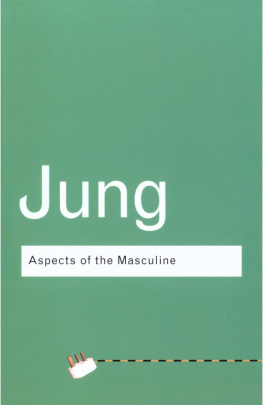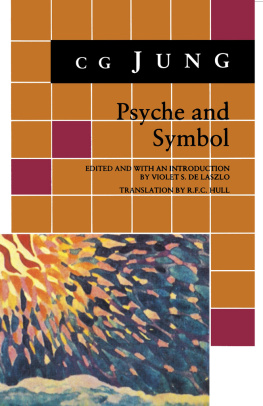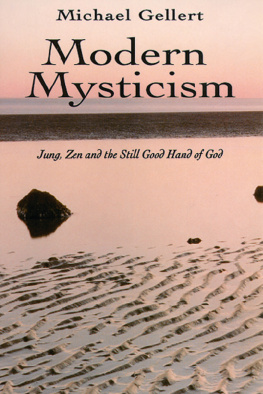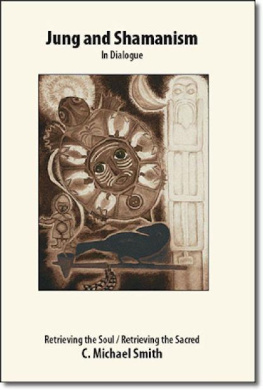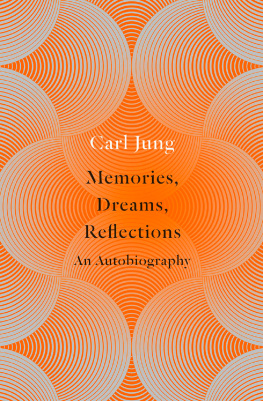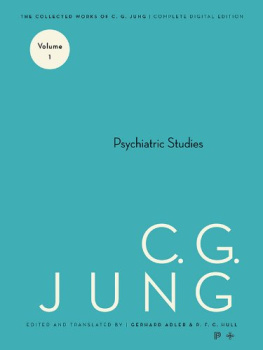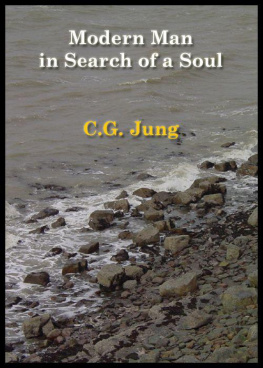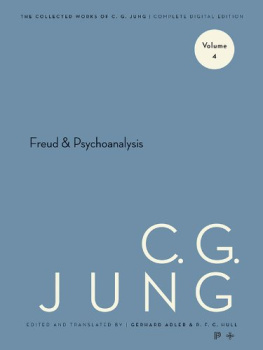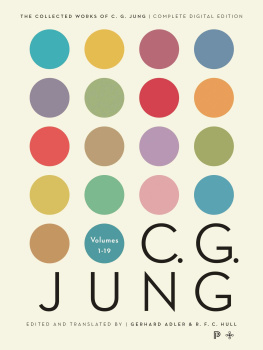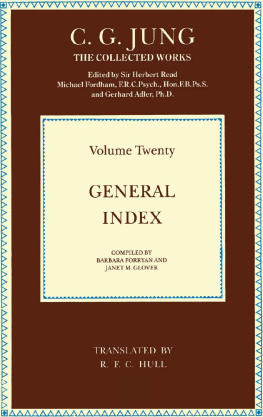C.G. Jung - Jung: Modern Man in Search of a Soul
Here you can read online C.G. Jung - Jung: Modern Man in Search of a Soul full text of the book (entire story) in english for free. Download pdf and epub, get meaning, cover and reviews about this ebook. year: 1933, publisher: Taylor and Francis, genre: Science. Description of the work, (preface) as well as reviews are available. Best literature library LitArk.com created for fans of good reading and offers a wide selection of genres:
Romance novel
Science fiction
Adventure
Detective
Science
History
Home and family
Prose
Art
Politics
Computer
Non-fiction
Religion
Business
Children
Humor
Choose a favorite category and find really read worthwhile books. Enjoy immersion in the world of imagination, feel the emotions of the characters or learn something new for yourself, make an fascinating discovery.
Jung: Modern Man in Search of a Soul: summary, description and annotation
We offer to read an annotation, description, summary or preface (depends on what the author of the book "Jung: Modern Man in Search of a Soul" wrote himself). If you haven't found the necessary information about the book — write in the comments, we will try to find it.
Jung: Modern Man in Search of a Soul — read online for free the complete book (whole text) full work
Below is the text of the book, divided by pages. System saving the place of the last page read, allows you to conveniently read the book "Jung: Modern Man in Search of a Soul" online for free, without having to search again every time where you left off. Put a bookmark, and you can go to the page where you finished reading at any time.
Font size:
Interval:
Bookmark:

His psychological approach is deeply interesting and should stimulate many who are today more ready to trust a doctor than a clergyman, to help them to rediscover the meaning of life.
The Guardian
Jung was the first to see that, of all the crises facing humanity, the lack of any sense of meaning in life is the crisis that guarantees all the rest. Whether the reader self-defines as modern, late modern or post-modern, the predicament that Jung lays out in bleak detail still strikes a chord. His suggestion that any possible solutions political, ecological, philosophical or religious must include and respect elements of what lies deep within the psyche (the soul) continues to challenge and to inspire.
Andrew Samuels, Professor of Analytical Psychology, University of Essex
This slim volume contains the quintessence of Jungs thinking. Originally published in 1933, it was the first readily accessible presentation in English of the great psychologists basic ideas about psychotherapy, dream interpretation, psychological types, the stages of life and his differences with Sigmund Freud. His observations on the relationship between the archaic man and modern man anticipate those of contemporary evolutionary psychiatry, while his diagnosis of what ails western culture has been endorsed by subsequent history. An invaluable book for those seeking an introduction to Jungian psychology, expressed with unusual clarity in the masters own words.
Anthony Stevens

Routledge Classics contains the very best of Routledge publishing over the past century or so, books that have, by popular consent, become established as classics in their field. Drawing on a fantastic heritage of innovative writing published by Routledge and its associated imprints, this series makes available in attractive, affordable form some of the most important works of modern times.
For a complete list of titles visit
www.routledgeclassics.com
Carl Gustav
Modern Man in Search of a Soul
Translated by W. S. Dell and Cary F. Baynes

First published 1933
by Kegan Paul, Trench, Trbner & Co.
First published in Routledge Classics 2001
by Routledge
2 Park Square, Milton Park, Abingdon, Oxon, OX14 4RN
711 Third Avenue, New York, NY 10017, USA
Routledge is an imprint of the Taylor & Francis Group, an informa business
Typeset in Joanna by RefineCatch Limited, Bungay, Suffolk
All rights reserved. No part of this book may be reprinted or reproduced or utilised in any form or by any electronic, mechanical, or other means, now known or hereafter invented, including photocopying and recording, or in any information storage or retrieval system, without permission in writing from the publishers.
British Library Cataloguing in Publication Data
A catalogue record for this book is available from the British Library
ISBN 13 9780415255448 (hbk)
ISBN 13 9780415253901 (pbk)
Within the last decade there have been many references from varied sources to the fact that the western world stands on the verge of a spiritual rebirth, that is, a fundamental change of attitude toward the values of life. After a long period of outward expansion, we are beginning to look within ourselves once more. There is very general agreement as to the phenomena surrounding this increasing shift of interest from facts as such to their meaning and value to us as individuals, but as soon as we begin to analyse the anticipations nursed by the various groups in our world with respect to the change that is to be hoped for, agreement is at an end and a sharp conflict of forces makes itself felt.
By those who uphold revealed religion, the rebirth that seems imminent is thought of as a renaissance of Catholicism or Protestantism, as the case may be. They see mankind streaming by the million back to the bosom of the Church, there to be comforted for the disillusionments and disasters of our post-war world, there to be taught the paths that will lead out of chaos. Renewal of faith in Christianity, they say, will bring us back to a sure way of life and restore the inspiration the world has lost.
Another great group of people think that the new attitude is to be attained by the total destruction of religion as it has up to now been understood. Religion is, they say, a relic of superstitious barbarism, and in its place must come a new and lasting period of enlightenment. Let man but apply his knowledge in the right way, especially his knowledge of economics and technology, and all the great bogies of poverty, ignorance, greed, etc., will vanish into thin air and man will be restored to his lost paradise. To them the rebirth is to be in the realm of reason alone, and the intellect becomes the arbiter of mans fate.
Between these two extremes of traditional faith and militant rationalism, every conceivable shade of opinion about this great problem of humanitys next step in psychic evolution is to be found. It may be said that the middle position is held by those people who know that they have outgrown the Church as exemplified in Christianity, but who have not therefore been brought to deny the fact that a religious attitude to life is as essential to them as a belief in the authenticity of science. These people have experienced the soul as vividly as the body, the body as vividly as the soul. And the soul has manifested itself to them in ways not to be explained in terms either of traditional theology or of materialism. They do not wish to sever the real piety they feel within themselves from the body of scientific fact to which reason gives its sanction. They are convinced that if they can attain to more knowledge of the inner workings of their own minds, more information about the subtle but none the less perfectly definite laws that govern the psyche, they can achieve the new attitude that is demanded without having on the one hand to regress to what is but a thinly veiled medival theology, or on the other, to fall victims to the illusions of nineteenth-century ideology.
It is to this last group of people that Jung speaks in convincing terms. He does not evade the difficult task of synthesizing his knowledge of the soul, gained in his many years of practice as psychiatrist and analyst, into a fund of information available and applicable to everyone. He gives those clues to the nature and functioning of the psyche for which the modern man is painfully groping. The point of view he lays before us is a challenge to the spirit, and evokes an active response in everyone who has felt within himself an urge to grow beyond his inheritance.
With one exception, together with several other essays which have already appeared in English.
Freud and JungContrasts, was written at the special request of a German editor.
(a)For the German text of Psychology and Literature (Psychologie und die Literaturwissenschaft) see Die Philosophie der Literaturwissenschaft, by Professor Emil Ermatinger, Junker und Dnnhaut, Berlin, 1929. An English translation by Eugene Jolas appeared in Transition, 1930. (b)Psychotherapists or the ClergyA Dilemma
Font size:
Interval:
Bookmark:
Similar books «Jung: Modern Man in Search of a Soul»
Look at similar books to Jung: Modern Man in Search of a Soul. We have selected literature similar in name and meaning in the hope of providing readers with more options to find new, interesting, not yet read works.
Discussion, reviews of the book Jung: Modern Man in Search of a Soul and just readers' own opinions. Leave your comments, write what you think about the work, its meaning or the main characters. Specify what exactly you liked and what you didn't like, and why you think so.

